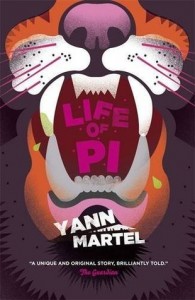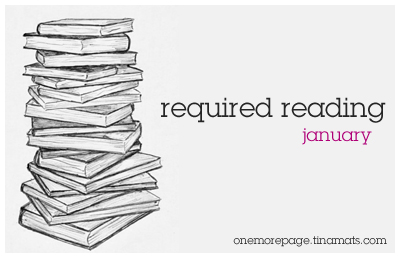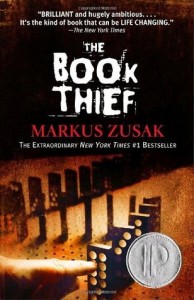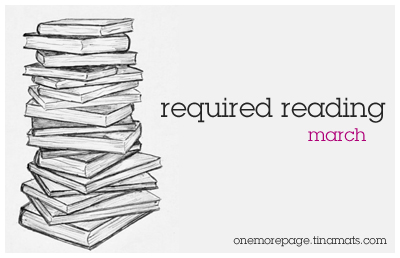 Life of Pi by Yann Martel
Life of Pi by Yann Martel
Publisher: Walker
Number of pages: 352
My copy: Paperback, bought from National Bookstore
Ladies and gentleman, boys and girls, it is my pleasure and honour to present to you:
THE PI PATEL, INDO-CANADIAN, TRANS-PACIFIC, FLOATING CIRCUUUSSSSS!!!
Take one sixteen-year-old boy and cast him away at sea in a lifeboat with a large (and seasick) Royal Bengal tiger. Imagine the scene 227 days later.
Now read Life of Pi and change your imagination.
* * *
I’ve had Life of Pi by Yann Martel on my radar since my senior year in college, but I never got it because I couldn’t really afford it on my allowance back then. Later, much later, there were many, many times I could have bought it but I prioritized other books so I didn’t get it even then. One time, during a book club meet-up, some friends were talking about this book so I asked them if they think it was something I would like. I remember someone telling me that I might be bored with it, so I decided to just borrow instead of buy. But alas, I never got to borrow it even after. It still wasn’t in my priority list, up until late last year, when my friends were talking about the books that will soon become movies. I figured, since I was starting to explore outside of the genres I usually read, that maybe it’s finally time to read it.
That, and there was the tiger.

My laptop’s wallpaper after watching Life of Pi. :)
I love tigers. Tigers are some of my favorite animals. If I could own a tiger for a pet, I would do that in a heartbeat. Tiger photos are an automatic reblog in my Tumblr, and I swear, I could stare at them for hours on end. So a big part of my wanting to read and watch Life of Piwas because of the tiger in the story.
Piscine Molitor Patel — Pi, for short — is a teenage boy whose family owned a zoo in Pondicherry, India. Pi has lived an interesting life, one that made the author seek him out so he can write his book, intrigued by the idea that Pi’s story can make him believe in God. Life of Piis really, well, Pi’s life, as he grew up surrounded by animals, his quest for (three) religions, growing with his belief and of course, his 227-days in the middle of the ocean after the ship carrying them to Canada sunk, leaving him on a lifeboat with a zebra, an orangutan, a hyena and a Bengal tiger named Richard Parker.
I wasn’t sure what to expect with this book, which probably helped me appreciate it. I just knew about the shipwreck and the tiger, but I didn’t know what was supposed to happen around it. I liked Pi’s voice, his boyishness that was slightly tinged with pain of recollection, since the story was being told from the point of view of the older Pi. I liked the lush atmosphere of Pi’s life in the zoo, and all the animal behavior lessons that he shared. It reminded me a bit of all the animal lessons in Animorphs by K.A. Applegate, my favorite scifi series growing up. This made me want to go visit a zoo and observe the animals for myself.
I also really liked Pi’s journey into religion. Or religions, rather. I think this is a part that people either really get or don’t get in the book. I don’t claim to get it all completely, but I appreciated Pi’s attempts to find God, even if it meant going to the other religions. It was more of a spiritual journey rather than religious, really, and there were several things that he learned from all three religions that I felt applied to life in general. I liked how Pi learned about God willingly, and I am pretty sure his earlier spiritual journey helped him in his predicament later on.
I realized while watching the movie that being stuck in the middle of the ocean with no sign of help or no land is now my worst nightmare. When I am island hopping on vacations, I am always the one wearing a life vest, because I am not the strongest swimmer. In the book, I cannot envision how the ocean can be merciless because I kept on thinking of it as a calm ocean since they were in the Pacific, right? Then I watched the movie and oh my Lord, I never want to be in that situation ever. Especially with a bengal tiger, even if I love that animal.
I found Pi’s adventures in the middle of the ocean very interesting and I was really, really rooting for him to live. Or rather, I am really, really hoping Richard Parker the tiger would live in the end. I can just imagine the tiger in the story, and the visuals in the movie (even if the tiger is completely computer generated) helped me love Richard Parker more. Pi’s adventures in the ocean had the most meat in it, I think, and there were so many, many things that got me even if I wouldn’t even dare to be stuck in the middle of the ocean like him. Some of my favorite passages:
It begins in your mind, always. One moment, you are feeling calm, self-possessed, happy. Then fear, disguised in the garb of mild-mannered doubt, slips into your mind like a spy…
So you must fight hard to express it. You must fight hard to shine the light of words upon it. Because if you don’t, if your fear becomes a wordless darkness that you avoid, perhaps even manage to forget, you open yourself to further attacks of fear because you never truly fought the opponent who defeated you. (p. 161, 162)
Despair was a heavy blackness that let no light in or out. It was a hell beyond expression. I thank God it always passed…The blackness would stir and eventually go away, and God would remain, a shining point of light in my heart. I would go on loving. (p. 209)
It’s important in life to conclude things properly. Only then can you let go. Otherwise you are left with words you should have said but never did, and your heart is heavy with remorse. (p. 285)
The ending left me…reeling. A friend told me about the twist in the story, but I wanted to be surprised and boy was I surprised. I couldn’t wrap my head around it for a while, and I had my first case of a book hangover for the year, which was extended right after watching the movie.
I’m really glad I started the year with this one. Life of Piby Yann Martel is a beautiful book. It’s not often a book leaves me with a delicious hangover that leaves me thinking and talking about the book after I was done. While it didn’t exactly make me believe in God more than I already do, I think this is a book that speaks of hope and belief even in the most impossible situations. :)
I meant to rate this four stars, but I am giving one full star for Richard Parker the tiger. Just because. :3
Rating: [rating=5]

Other reviews:
Code Name: Blue
It’s a Wonderful Book World
reading is the ultimate aphrodisiac






